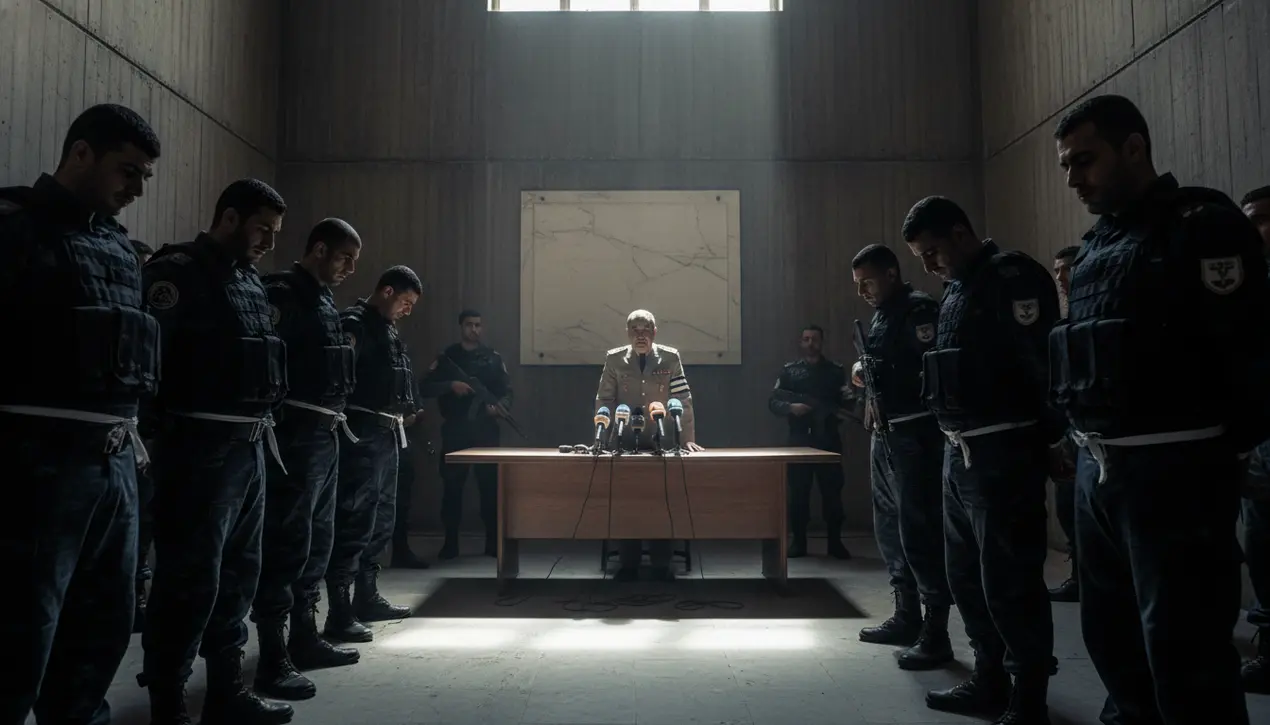
Politicsconflict & defenseMilitary Operations
Syrian Security Forces Detained Over Sweida Sectarian Violence.
OL
Oliver Scott
4 hours ago7 min read
The detention of Syrian security and military personnel, announced this Sunday as part of an official probe into July's brutal sectarian violence in Sweida, represents a critical inflection point for the Assad regime—a calculated maneuver to project control amid simmering instability. This southern province, predominantly inhabited by the Druze minority, witnessed a massacre that left hundreds dead, an event so severe it compelled the formation of a state-level investigative committee.The committee's head, in a Damascus news conference notable for its controlled disclosure, outlined procedural progress while conspicuously withholding a final death toll, deferring that grim accounting to a year-end report—a delay that analysts interpret as a tactic to manage domestic and international outcry while the regime attempts to contain the fallout. The violence in Sweida is not an isolated flare-up but a direct consequence of the protracted Syrian civil war's complex sectarian geography, where the Druze community has historically maintained a precarious autonomy, often caught between regime forces and various opposition factions.The regime's decision to publicly detain its own security members is a high-stakes gambit, likely aimed at appeasing the influential Druze leadership and preempting wider civil unrest that could threaten its hard-won, albeit fragile, territorial gains. However, this move carries significant internal risk; it risks alienating core security apparatuses that have been the bedrock of Assad's survival, potentially exposing fissures within the military and intelligence services that have operated with impunity for over a decade.The strategic calculus here is multifaceted: by appearing to hold its own accountable, the regime seeks to bolster its legitimacy on the world stage, particularly for key allies like Russia and Iran who have a vested interest in a stable, client state, not a perpetually fractured one. Yet, the opaque nature of the investigation, coupled with the delayed final report, suggests a process designed more for political theater than for transparent justice, raising profound questions about whether any high-ranking officials will face meaningful consequences.The broader implications extend beyond Syria's borders, potentially affecting the delicate political equilibrium in neighboring Lebanon and Jordan, both of which host significant Druze populations and are acutely sensitive to sectarian spillover. For regional stakeholders and global powers monitoring Syria's slow-burn reconstruction, the Sweida investigation serves as a crucial litmus test for the regime's capacity—or willingness—to govern a multi-sectarian state in the aftermath of a conflict that has fundamentally redrawn its demographic and political map. The ultimate risk scenario, which security analysts are now modeling, is that this crackdown could inadvertently trigger a new wave of internal purges or retaliatory violence, undermining the very stability the regime purports to secure.
#Syria
#Sweida
#sectarian violence
#security forces
#investigation
#detentions
#deaths
#featured
Stay Informed. Act Smarter.
Get weekly highlights, major headlines, and expert insights — then put your knowledge to work in our live prediction markets.
Comments
Loading comments...
© 2025 Outpoll Service LTD. All rights reserved.